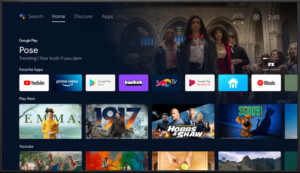Was Winston Churchill’s Funeral Televised? A Look Back at the Historic Broadcast
The state funeral of Sir Winston Churchill on January 30, 1965, marked a pivotal moment in British history. A question often asked is: Was Winston Churchill’s funeral televised? The answer is a resounding yes. Not only was it televised, but the BBC’s comprehensive broadcast brought the somber yet grand event to millions around the globe, making it a landmark moment in television history. This broadcast was the first state funeral for a politician in the 20th century and the largest national event since the 1953 coronation.
The BBC understood the historical significance of the occasion and entrusted the monumental task of presenting the coverage to Richard Dimbleby. For over four hours, Dimbleby provided insightful and respectful commentary, guiding viewers through the intricate proceedings. His gravitas and knowledge resonated with the audience, as evidenced by the 1,600 letters of appreciation he received. This solidified the BBC’s role as the trusted source for national events.
To ensure comprehensive coverage, the BBC strategically positioned 36 cameras along the procession route. The cortege journeyed from Westminster Hall to St. Paul’s Cathedral, then along the Thames from Tower Hill to the Festival Hall, before finally departing by train from Waterloo Station for Bladon, Churchill’s final resting place. This meticulous planning allowed viewers to witness not only the official ceremony but also spontaneous moments of respect, such as the lowering of dockside cranes in salute. Dimbleby orchestrated the entire broadcast from a control room within St. Paul’s Cathedral.
The funeral service itself, held at St. Paul’s, was a spectacle of tradition and solemnity. The grandeur of the setting, combined with the poignant music and readings, created a fitting tribute to the iconic leader. Even Queen Elizabeth II, a participant in the day’s events, later watched the 90-minute highlights program, a testament to the broadcast’s captivating quality, according to Dimbleby.
Tragically, Richard Dimbleby passed away from cancer later that year. However, his legacy of exceptional broadcasting lived on. His son, David Dimbleby, followed in his footsteps, becoming a prominent voice of the BBC at numerous national events. This underscores the enduring importance of skilled and empathetic reporting in conveying the significance of historical moments to the nation and the world. The televised funeral of Winston Churchill remains a powerful example of how broadcasting can unite a nation in grief and remembrance, while also preserving a crucial moment in history for future generations. The BBC’s comprehensive coverage ensured that Churchill’s funeral was not just a national event, but a global one, shared by millions who mourned the loss of a remarkable leader.








